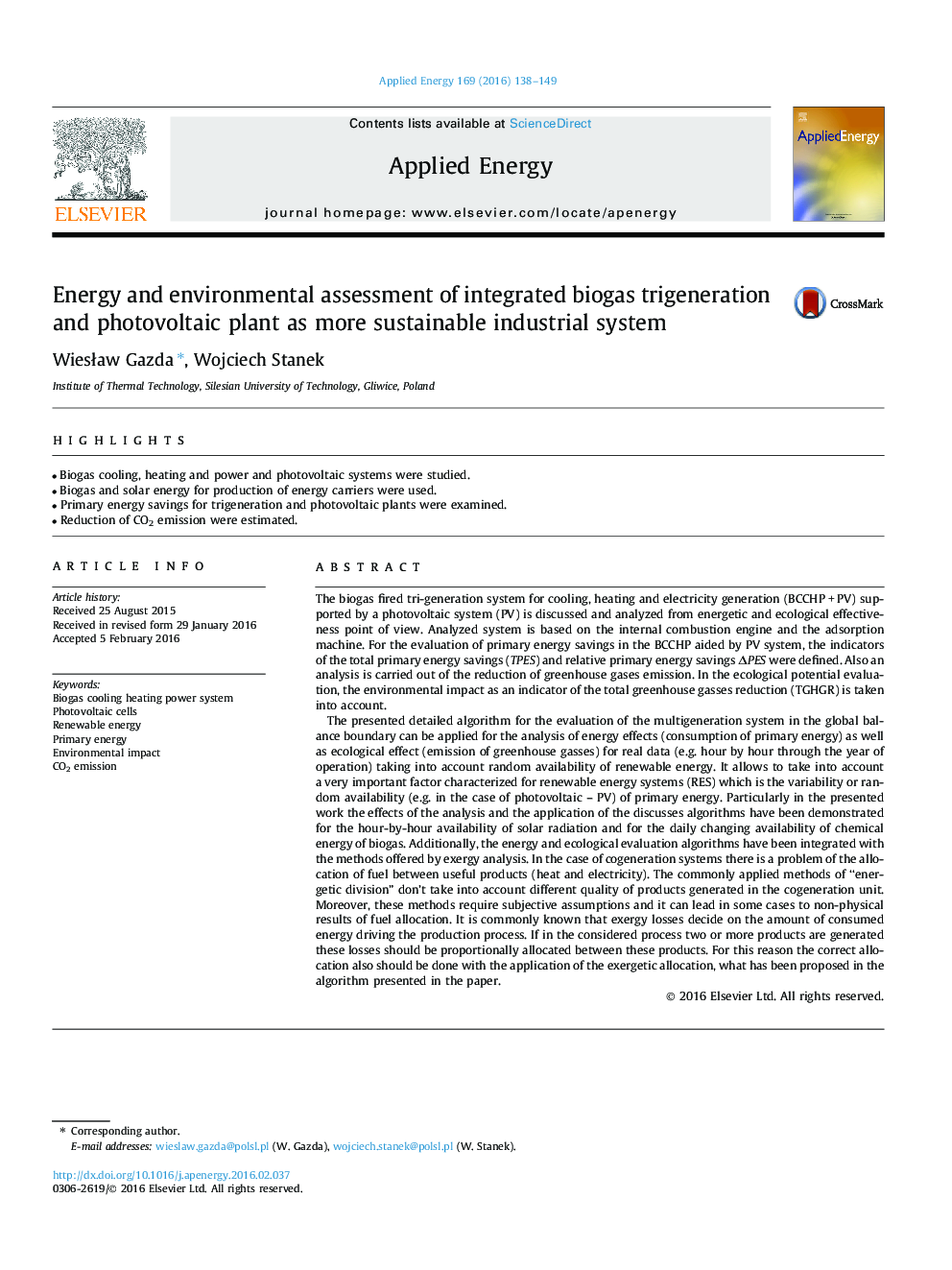| Article ID | Journal | Published Year | Pages | File Type |
|---|---|---|---|---|
| 6683450 | Applied Energy | 2016 | 12 Pages |
Abstract
The presented detailed algorithm for the evaluation of the multigeneration system in the global balance boundary can be applied for the analysis of energy effects (consumption of primary energy) as well as ecological effect (emission of greenhouse gasses) for real data (e.g. hour by hour through the year of operation) taking into account random availability of renewable energy. It allows to take into account a very important factor characterized for renewable energy systems (RES) which is the variability or random availability (e.g. in the case of photovoltaic - PV) of primary energy. Particularly in the presented work the effects of the analysis and the application of the discusses algorithms have been demonstrated for the hour-by-hour availability of solar radiation and for the daily changing availability of chemical energy of biogas. Additionally, the energy and ecological evaluation algorithms have been integrated with the methods offered by exergy analysis. In the case of cogeneration systems there is a problem of the allocation of fuel between useful products (heat and electricity). The commonly applied methods of “energetic division” don't take into account different quality of products generated in the cogeneration unit. Moreover, these methods require subjective assumptions and it can lead in some cases to non-physical results of fuel allocation. It is commonly known that exergy losses decide on the amount of consumed energy driving the production process. If in the considered process two or more products are generated these losses should be proportionally allocated between these products. For this reason the correct allocation also should be done with the application of the exergetic allocation, what has been proposed in the algorithm presented in the paper.
Related Topics
Physical Sciences and Engineering
Energy
Energy Engineering and Power Technology
Authors
WiesÅaw Gazda, Wojciech Stanek,
